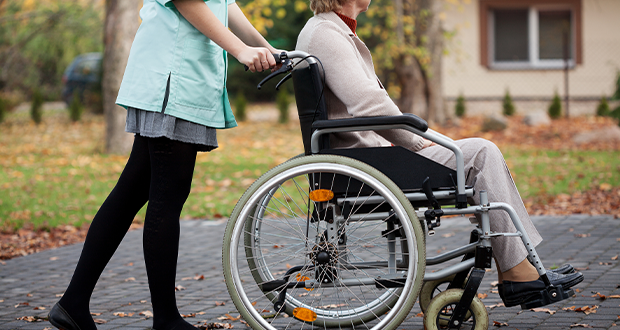Australia just topped the U.S. News & World Report's Best Countries ranking for a comfortable retirement because of our healthcare programs, pensions, and cost of living. Yet, the stark reality is that simultaneous population ageing and decline will change this in the near future.
We are ageing – not just as individuals or communities but as a global population. For the first time in history, people aged 65 and over will outnumber children under age 5.
In 2006, almost 500 million people worldwide were 65 and older. By 2030, that total is projected to increase to 1 billion. As people live longer and have fewer children, family structures become transformed, leaving older people with fewer options for care.
This poses a complex, but important question: what will happen as populations age, all at once, globally?
The truth is that Australia’s ageing population is straining existing health and pension systems, and we must act now or face an impending crisis.
Existing healthcare challenges
An ageing population presents long-term economic and fiscal challenges, with fewer people of working age relative to the number of older Australians and a growing demand for quality care and support services.
Well-planned and well-managed population growth would help to deliver better outcomes, but we still need to ensure we’re creating a pipeline of healthcare workers for the future.
Our demand for care and support workers has already outpaced the availability of talent significantly.
The 2021 Australian Government Care Workforce Labour Market Study predicts a gap of more than 200 thousand full-time care workers by 2050.
Medical specialisation can take over 10 years of study in some cases, and with the last baby boomers set to retire by 2031, people who are thinking of becoming medical specialists need to make their career decisions now.
Shrinking ratios of workers to pensioners and people spending a larger portion of their lives in retirement, increasingly strain existing health and pension systems.
A lower number of working-age Australians will result in lower tax revenues; at the same time, expenditure on age-related services is expected to increase.
Given the projected decrease in tax revenues, our government aims to address this challenge by shifting our reliance from pensions to superannuation as a key source of retirement income, calling it a “silver lining” in The Intergenerational Report.
While Treasurer Jim Chalmers applauded this shift, calling it the “intergenerational genius of super,” it fails to consider the burden on family members who provide informal support, often tapping into their own income and assets to provide adequate care for their parents or grandparents.
Supporting informal care workers
Australia’s aged care system is becoming overwhelmed as facilities reach capacity or become too expensive.
This is contributing to a massive boom in aged care services that are targeted at allowing people to age in place, which often creates more reliance on family members for unpaid care and support.
Much of the responsibility has fallen on the ‘sandwich generation’ – those caring for their children and their parents.
While these family members increasingly take on caring responsibilities, the government fails to recognise them as formal carers and thus excludes them from any standard support and compensation.
As a result, this generation continues to face unprecedented financial, emotional, and time-related challenges, worsened by a lack of governmental recognition.
The heartfelt, almost universal desire of the elderly to spend their twilight years within the walls of their homes is more than just a personal choice.
Their carers are now thrust into an overwhelming vortex, struggling to provide their ageing loved ones with the necessary care, while simultaneously juggling work, life, and often, the demands of raising a younger generation.
Australia’s post-pandemic strategy of bringing overseas workers aimed at addressing health workforce shortages certainly helped, but the idea that we can simply ‘import’ our way out of this issue is unrealistic.
The reality is stark: every developed nation is vying for the same pool of younger immigrants. In this global tug-of-war, relying on skilled workforce migration as our lifeline is not merely short-sighted but perilously naive.
A call for dignity
As the Australian population continues to age, we are not just on the brink of a challenge – we're facing an impending crisis.
The economic ramifications of this is clear, but it is not just a matter of numbers and statistics; these are signs of a seismic shift that will shake the very foundations of Australian families.
In this profound moment of national reckoning, the response from governmental corridors has been, at best, an echoing silence.
The conspicuous absence of a clear, actionable roadmap to address the surging demand for in-home care stands testament to a disturbing trend – one of selfish policymaking.
Technology can definitely help make healthcare more accessible, but the onus shouldn't only be on private companies or individuals to solve this challenge. Instead, we must come together to drive real change.
We are at a crossroads.
A crossroads that demands more than stop-gap measures or fleeting strategies.
Our ageing populace deserves dignity, care, and quality of life.
The need for a holistic, well-thought-out strategy has never been more urgent.
Mark Woodland is the founder and chief of the Australian health tech company, Kismet.
Do you have an idea for a story?Email [email protected]
 Aged Care Insite Australia's number one aged care news source
Aged Care Insite Australia's number one aged care news source

